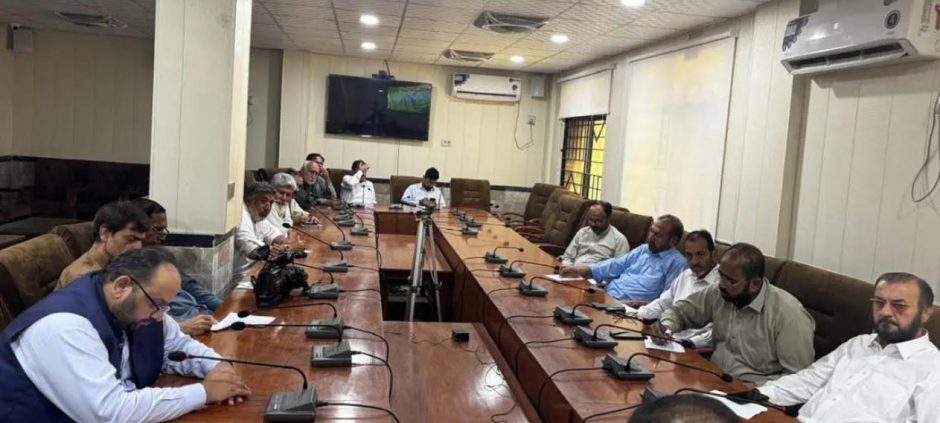Mardan – The company demanded that PTB announce its decision regarding surplus tobacco at the earliest to provide clarity for farmers, who are growing increasingly anxious due to delays.
During a briefing session for journalists at Mardan Press Club, PTC emphasized its commitment to support farmers, ensure transparency in the tobacco leaf procurement process, and strengthen efforts against illicit trade.
PTC representatives highlighted that the company is purchasing tobacco from farmers at the pre-agreed demand and officially notified prices, in strict compliance with the regulatory framework overseen by the Pakistan Tobacco Board (PTB). The industry operates under the PTB Ordinance of 1968.
Under Martial Law Order (MLO) 487, PTB annually allocates procurement quotas to manufacturers based on their declared requirements, which are publicly notified for transparency.
This year, the collective demand of all tobacco companies stood at around 81.5 million kilograms, with PTC’s share at 25 percent. However, total tobacco production is expected to exceed 100 million kilograms. In such cases of surplus, PTB ensures proportional distribution among companies to safeguard farmers’ interests. Companies are bound to purchase surplus tobacco at or above the Minimum Indicative Price (MIP).
During the briefing, PTC representatives informed that the company maintains direct contracts with over 10,000 farmers and provides technical training and agricultural support through nearly 150 experts from seed sowing to harvest. Recently, PTC extended financial support exceeding one billion rupees to tobacco growers in the region.
They also expressed concern that some companies exploit farmers by purchasing tobacco at significantly lower rates—up to Rs. 200 per kilogram less than the notified price۔
While PTC ensures timely payments within 30 days, other companies delay payments by three to six months, causing severe financial distress for farmers. In many cases, small buyers even disappear, leaving farmers at a loss.
PTC urged the Pakistan Tobacco Board to take notice of these exploitative practices and protect farmers from unfair buyers who not only undervalue their hard work but also delay payments.











